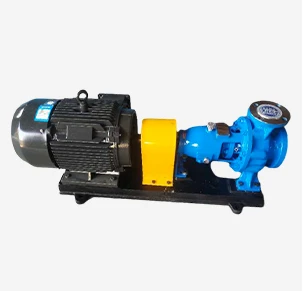English
- Afrikaans
- Albanian
- Amharic
- Arabic
- Armenian
- Azerbaijani
- Basque
- Belarusian
- Bengali
- Bosnian
- Bulgarian
- Catalan
- Cebuano
- Corsican
- Croatian
- Czech
- Danish
- Dutch
- English
- Esperanto
- Estonian
- Finnish
- French
- Frisian
- Galician
- Georgian
- German
- Greek
- Gujarati
- Haitian Creole
- hausa
- hawaiian
- Hebrew
- Hindi
- Miao
- Hungarian
- Icelandic
- igbo
- Indonesian
- irish
- Italian
- Japanese
- Javanese
- Kannada
- kazakh
- Khmer
- Rwandese
- Korean
- Kurdish
- Kyrgyz
- Lao
- Latin
- Latvian
- Lithuanian
- Luxembourgish
- Macedonian
- Malgashi
- Malay
- Malayalam
- Maltese
- Maori
- Marathi
- Mongolian
- Myanmar
- Nepali
- Norwegian
- Norwegian
- Occitan
- Pashto
- Persian
- Polish
- Portuguese
- Punjabi
- Romanian
- Russian
- Samoan
- Scottish Gaelic
- Serbian
- Sesotho
- Shona
- Sindhi
- Sinhala
- Slovak
- Slovenian
- Somali
- Spanish
- Sundanese
- Swahili
- Swedish
- Tagalog
- Tajik
- Tamil
- Tatar
- Telugu
- Thai
- Turkish
- Turkmen
- Ukrainian
- Urdu
- Uighur
- Uzbek
- Vietnamese
- Welsh
- Bantu
- Yiddish
- Yoruba
- Zulu
Telephone: +86 13120555503
Email: frank@cypump.com
Dec . 25, 2024 07:40 Back to list
Efficient Solutions for Sewer Water Pumping Systems and Maintenance Techniques
The Importance of Sewer Water Pumps in Urban Infrastructure
Sewer water pumps play a crucial role in managing wastewater and maintaining the health and hygiene of urban environments. As populations grow and cities expand, effective wastewater management becomes increasingly important. Sewer water pumps are essential components of this system, ensuring that sewage and wastewater are efficiently transported away from residential and commercial areas and treated properly.
What Are Sewer Water Pumps?
Sewer water pumps are specialized devices designed to move sewage and wastewater from lower elevations to treatment facilities or disposal sites. These pumps are usually located in lift stations or pumping stations, which are strategically placed throughout urban areas to control the flow of wastewater. The pumps can handle a variety of materials, including water, solids, and sludge, and are designed to operate effectively under various conditions.
There are several types of sewer water pumps, including submersible pumps, centrifugal pumps, and positive displacement pumps. Submersible pumps, for example, are submerged in the wastewater and are especially useful in applications where space is limited. Centrifugal pumps use a rotating impeller to create a flow that moves water, while positive displacement pumps move a fixed volume of fluid with each cycle. Each type has its specific use cases, strengths, and limitations.
Why Are Sewer Water Pumps Necessary?
1. Public Health One of the most critical reasons for utilizing sewer water pumps is to protect public health. By efficiently transporting sewage away from populated areas, these pumps prevent the accumulation of harmful waste that could lead to disease outbreaks. Inadequate waste disposal can result in contaminated water supplies, creating serious health risks.
2. Environmental Protection Sewage and wastewater contain a variety of harmful pollutants, including pathogens, chemicals, and nutrients that can affect ecosystems. Sewer water pumps help minimize these environmental hazards by directing waste to treatment plants where it can be processed and cleaned before being released back into the environment.
sewer water pump

3. Flood Prevention Heavy rainfall and stormwater can lead to flooding, especially in low-lying areas where sewage is often stored. Sewer water pumps are instrumental in managing excess water, ensuring that the sewage system can handle overflow and reducing the risk of backflow into homes and businesses.
4. Urban Development As cities grow, the demand for effective wastewater management systems increases. Sewer water pumps facilitate urban development by allowing for the construction of housing, businesses, and infrastructure in previously undeveloped areas. With reliable waste management systems in place, cities can expand sustainably.
Innovations and Future Trends
Technological advancements are enhancing the efficiency and effectiveness of sewer water pumps. Automation, for instance, is enabling more sophisticated monitoring and control systems, allowing operators to manage pumps remotely and respond to issues in real-time. Smart sensors can provide data on flow rates, blockages, and maintenance needs, significantly reducing downtime and increasing efficiency.
Additionally, the integration of renewable energy sources is becoming more prevalent. Some pumping stations are now using solar or wind power to reduce their carbon footprint and operational costs. As cities grapple with climate change and sustainability challenges, these innovations will play a pivotal role in future wastewater management strategies.
Conclusion
Sewer water pumps may not be the most glamorous component of urban infrastructure, but their importance cannot be overstated. They are integral to protecting public health, safeguarding the environment, preventing flooding, and enabling urban growth. As we move forward, ongoing innovations in this field will continue to enhance the functionality of sewer water pumps, ensuring they can meet the demands of increasingly populated urban areas while minimizing their impact on the planet. Investing in reliable and efficient wastewater management systems is essential for building resilient and sustainable cities for future generations.
-
ISG Series Vertical Pipeline Pump - Chi Yuan Pumps Co., LTD.
NewsJul.30,2025
-
ISG Series Vertical Pipeline Pump - Chi Yuan Pumps Co., LTD.|energy-efficient fluid handling&industrial durability
NewsJul.30,2025
-
ISG Series Vertical Pipeline Pump - Chi Yuan Pumps | Advanced Engineering&Industrial Efficiency
NewsJul.30,2025
-
ISG Series Pipeline Pump - Chi Yuan Pumps | High Efficiency, Energy Saving
NewsJul.30,2025
-
ISG Series Vertical Pipeline Pump-Chi Yuan Pumps|High Efficiency&Reliable Performance
NewsJul.29,2025
-
ISG Series Vertical Pipeline Pump|High Efficiency&Low Noise
NewsJul.29,2025










